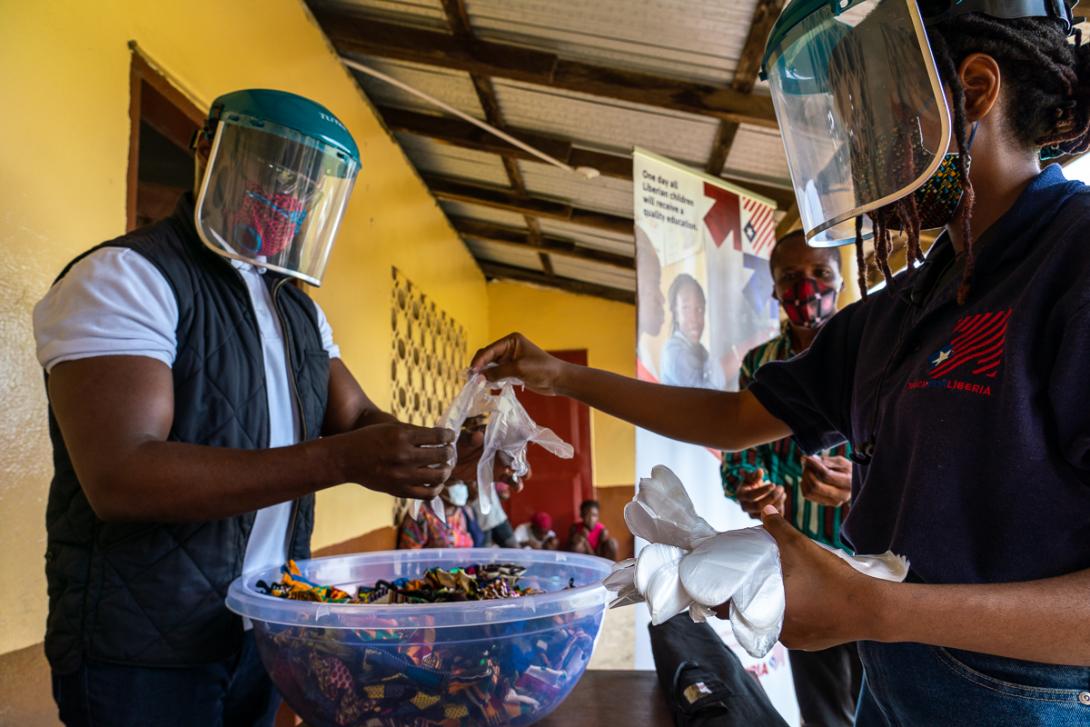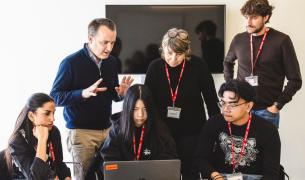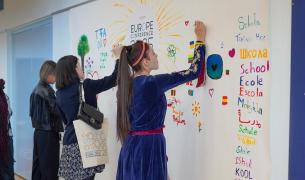Teach For Liberia: Ensuring families are fed and informed during the pandemic

In September 2019, Teach For Liberia officially launched its program and its first cohort of teachers began leading classrooms in under-resourced communities in Bomi and Montserrado counties. Just five months later, on March 17, 2020, the Liberian Ministry of Education closed the nation’s schools to help prevent the transmission of COVID-19. Following this announcement, “We immediately decided to ensure that Teach For Liberia would be a place that our stakeholders and community members could engage for accurate, timely information on the virus’s spread, containment, and mitigation,” says Desmond Diggs, the organization’s Founder and Executive Director.
Within days, Teach For Liberia began leveraging its social media platforms and network of teaching fellows to communicate public health messages, safety tips, and updates on school closures. The organization partnered with the Ministry of Education, the Education NGO Forum, the World Bank, The Cummings Africa Foundation and other organizations, to serve on the Education in Emergencies Working Group to ensure ongoing instruction of students, school feeding programs, and the reintroduction of water, sanitation and hygiene (WASH) protocols in Liberia. Desmond and his team also supported the Ministry in adopting virtual meeting platforms to improve its ability to communicate with critical stakeholders.
Through engaging with students, families, and other community members, the Teach For Liberia team quickly understood that the social and economic impact of the pandemic left many families who were already struggling to make ends meet in dire need of food and sanitation supplies. In collaboration with its teaching fellows, the team designed an emergency community-based feeding program that would educate local residents about the virus and how to prevent its spread, while ensuring that families could participate in social distancing without fear of going without food. “Liberian citizens should not have to choose between the certainty of starvation and the possibility of contracting the virus,” Desmond explains.

Led by the fellows, the program supplied rice, chicken broth, cooking oil, canned goods, charcoal, and disinfectant to more than 600 families via schools and other local institutions that served as temporary distribution sites. In addition to food and cleaning supplies, recipients were given masks and information packets to promote awareness and mitigation of COVID-19. With an initial goal of feeding 3000 community members, over the course of four weeks, the Teach For Liberia team was able to reach more than 5,500—an 85% increase in impact from what the team had envisioned. “Initially we intended to focus our efforts on directly impacted students and their families, however as the situation intensified, expanding our reach became imperative,” says Desmond. “This feeding program would not have been complete without supporting health care workers who risk their lives and the disabled community who require special assistance.”
As the new school year approaches, Teach For Liberia is hopeful that the food distribution program helped ensure students will be able to return to school healthy and ready to learn, without fear of going hungry or having to leave school to support their families. As for the team, “This pandemic has been an opportunity to exhibit our unwavering resolve as we show kindness, while demonstrating courage and optimism,” Desmond says. Teach For Liberia’s second cohort of over 70 teaching fellows are currently preparing to begin pre-service institute, where they’ll receive training and development that will equip them to lead their own classrooms in the new year.


